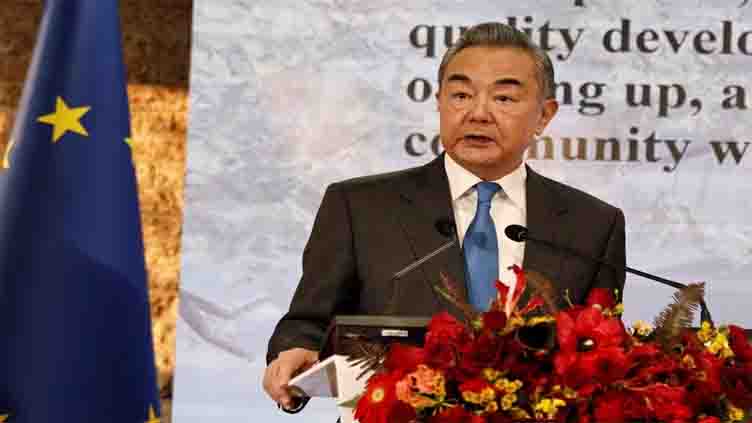China, Canada should work toward strategic partnership, China's Wang says

World
Wang and Joly also exchanged views on the war in Ukraine and Israel-Palestinian conflict.
BEIJING (Reuters) - China and Canada should promote normalising relations and get back on track toward establishing a strategic partnership, Foreign Minister Wang Yi told his Canadian counterpart, according to his ministry.
"China-Canada relations have experienced difficulties and twists and turns over the years, which is not something China would like to see," Wang told Foreign Minister Melanie Joly in Beijing, the ministry said in a statement late on Friday.
Joly's three-day visit through Saturday, at Wang's invitation, is the first by a Canadian foreign minister in seven years.
Bilateral relations, established in 1970, turned icy in 2018 after Huawei's Chief Financial Officer Meng Wanzhou was arrested in Canada and China subsequently arrested two Canadians in China.
All three were later released, but Ottawa's allegations of Chinese interference in Canada have kept relations strained.
The last time Chinese and Canadian leaders met was in Indonesia in 2022, when President Xi Jinping criticised Prime Minister Justin Trudeau over alleged leaks of a closed-door meeting.
There is no fundamental conflict of interest between China and Canada, Wang told Joly, adding that maintaining and developing bilateral relations is in the interest of the two countries and peoples.
He said issues relating to Taiwan, Tibet, Xinjiang and Hong Kong pertain to China's domestic politics and that Canada should not interfere.
She was quoted by the ministry as saying Canada will abide by the one-China policy and is willing to actively develop the bilateral relationship and enhance cooperation in areas such as trade and economy, tourism, climate change and drug control.
Wang and Joly also exchanged views on the war in Ukraine and Israel-Palestinian conflict.
Meng, the daughter of Huawei's founder, was detained in Vancouver after the United States issued an arrest warrant accusing her of covering up attempts by companies linked to the Chinese tech giant to sell equipment to Iran, breaking U.S. sanctions.
Washington has sought to cripple Huawei on national security grounds. Huawei has denied it is a security risk.
China, warning Canada of consequences if Meng was not released, arrested Canadians Michael Spavor and Michael Kovrig.
Meng was released in 2021 after a deal cut with U.S. prosecutors to end her bank fraud case, and returned to China. The two Michaels, as the case came to be known, were also released after nearly three years in detention.
Canada has also claimed political interference by China.
Last year, Ottawa began investigating covert Chinese police operations within its borders, while Beijing has denied repeatedly that it interferes with Canada's affairs.
In April the Canadian spy agency concluded that China had interfered in its 2019 and 2021 elections, prompting Trudeau to set up a commission to probe foreign interference.


